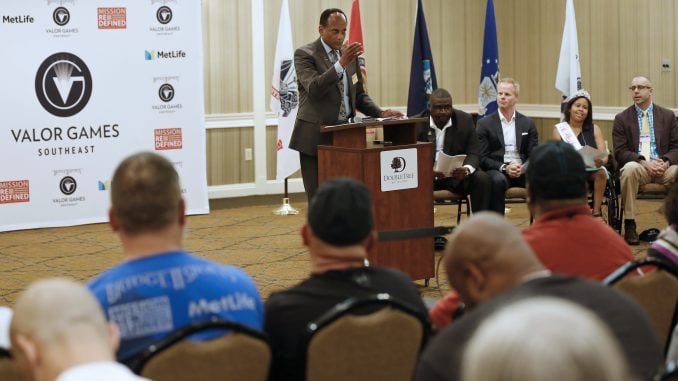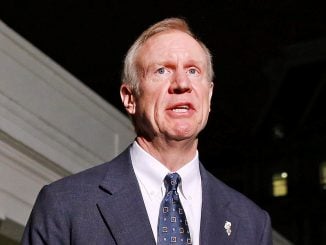
DURHAM – Larry Hall spent years in the state legislature, but says his new role as secretary of Gov. Roy Cooper’s Department of Military and Veterans Affairs (DMVA) is even more challenging. The department is in its infancy, having been established at the request of former Gov. Pat McCrory in 2015. The stated goals are to help military families and veterans get access to support and services, connect veterans with jobs, and advocate for North Carolina’s military installations.”It’s budget time, and trying to make sure we have enough support for our agency to move forward is key,” said Hall, who says the new department is lacking the staff and funding to support its mission. One of Hall’s priorities is to continue vital services at state-run military facilities, which in large part includes increasing the pay of their employees, many of whom are veterans themselves. The state manages four assisted living homes for veterans with 449 skilled care beds at Fayetteville, Salisbury, Black Mountain, and Kinston locations. The homes employ over 750 North Carolinians, with employment preference given for prior military service. Hall says they hope to open two new facilities over the next four years, located in Winston-Salem and Raleigh-Durham. Hall says there are only approximately twenty workers at each of the state’s four military cemeteries located in Jacksonville, Goldsboro, Black Mountain, and on Fort Bragg. Staff consists primarily of groundskeepers and site managers, which Hall says are often hard to recruit and retain.”In many instances, we are competing in the market against golf courses, Parks and Recreation, private landscaping services,” said Hall, “so we’ve had to ask for an increase [in funding] to try to bring those people closer to market rates, so we can provide services to veteran families.”The cemeteries often pay their employees from the federal burial benefits available for most veterans who are laid to rest at one of the four state cemeteries, allowing the burial to come at no cost to the veterans’ families.But state Rep. Grier Matin (D-Wake) says that paying workers through the receipt system is probably a bit outdated. “The receipts come in when a veteran is buried there, I believe it is essentially a one-time fee,” said Martin, a veteran of Afghanistan who currently serves in the U.S. Army Reserves, “but once you plant the veteran in the cemetery, the need to maintain that space continues.”A superintendent at a military cemetery makes somewhere in the $40,000/yr range, while private cemetery Superintendents make upward of $55,000/yr. A recent posting for a groundskeeper at the Jacksonville site has a range of $24,000 to $36,000, based on experience. Gov. Cooper’s budget proposal to the General Assembly included $578,854 to create ten new salaried positions at the military cemeteries, and funding aligned with his 2% state employee pay increase, but with nothing specifically carved out for the current nursing home or cemetery employees.The Senate budget released earlier this month did not include Cooper’s ten positions, and allocates only $20,521 in recurring funds to increase DMVA employee salaries, which aligns with their overall 1.5% salary bump for all state employees. “We’re basically flatlined or at zero,” said Hall about the Senate budget proposal, “We have no margin of error.” The House has only released highlights of their budget by press time, with no mention of an increased budget for DMVA.However, Senate leaders also provide $10 million in the biennium toward hard-to-hire positions across state government, such as health care technicians and nurses, and designates roughly $4 million to “allow Gov. Cooper to increase the base salary ranges for many state workers”, according to Senate Leader Berger’s office.Ultimately, it may be up to Sec. Hall to lobby the governor to use his discresionary funding for positions and salary bumps within DMVA. “It’s simply not sustainable with the increasing number of veterans who need services,” said Hall.



